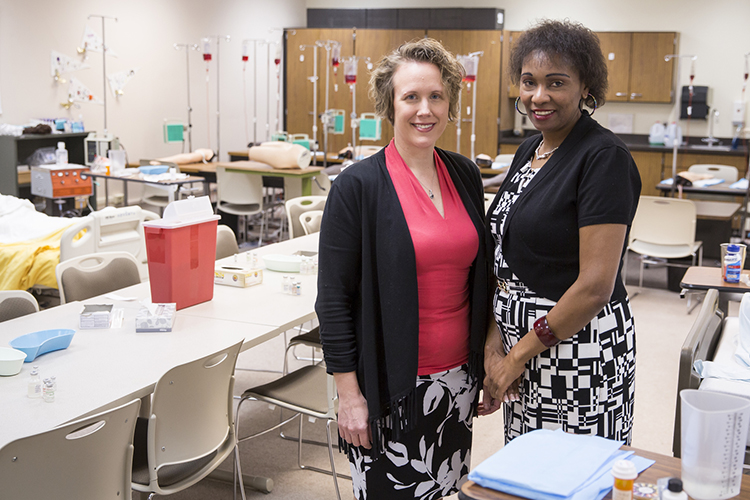Pregnancy and new motherhood can be times of high stress and sometimes depression, but women in need of mental health treatment during the perinatal period face a severe shortage of psychiatrists trained in this specialty.
And many primary-care providers often do not have the knowledge or experience to fill the gap in care.
Two nursing faculty members from the University of Wisconsin-Milwaukee, in partnership with the Medical College of Wisconsin and UnitedHealth Group, are launching a program designed to expand access to care and curb current costs of perinatal mental health treatment.
The program enables on-demand phone consulting between off-site perinatal psychiatrists and patients’ local physicians practicing in other fields of medicine.
MCW is administering the program, called Perinatal Specialty Consult Psychiatry Extension (Periscope Project).
Provider-to-provider consultation gets psychiatric treatment to patients when they need it. In addition to primary-care or ob-gyn physicians, the project will allow other health care providers, such as midwives or nurse practitioners, to enroll.
“When a woman finds out she is pregnant, she is highly motivated to stop smoking or substance abuse,” said Jennifer Doering, a UWM associate professor of nursing. “But the stress of having a new baby can result in a relapse in those habits, which then threaten the health of the mother and baby.”
The challenge of medication
Psychiatric medications are particularly difficult to manage in the perinatal period, Doering said. Primary-care physicians may be inclined to take a woman off her psychiatric medication once she becomes pregnant when the better choice would be to simply change the medication.
The worry, Doering said, is that women who discontinue medication may “self-medicate” with substances such as alcohol that can result in harm to the fetus or infant.
“We are partnering with UWM and the Medical College of Wisconsin to help ensure that primary-care providers have the tools they need to enhance new and expectant mothers’ health and well-being,” said Dr. Donna Davidoff, chief medical officer for UnitedHealthcare Community Plan of Wisconsin. “The Periscope Project will improve access to coordinated, comprehensive care.”
Enrolled local health care providers can use the service for their patients from preconception through postpartum and even between pregnancies. Staffing will be provided initially by one perinatal psychiatrist, but MCW plans to add additional psychiatrists to meet the demand.
The Periscope Project also will track how the coaching translates into cost-efficiency in perinatal mental health care, said Jennifer Kibicho, a UWM assistant professor and health economist on the project.
“We know that provider consultation has a downstream cost-savings impact that benefits all stakeholders,” Kilbicho said. “It reduces hospitalization and trips to the ER.”
But the program could also prevent preterm births, the No. 1 risk factor for infant death. That’s important in a city like Milwaukee where infant mortality rates are higher than the national average, according to the 2016 America’s Health Rankings’ Health of Women and Children Report.
Multi-disciplinary team
The project is led by a multi-disciplinary team that includes Dr. Christina Wichman, a perinatal psychiatrist in MCW’s Department of Psychiatry and Behavioral Medicine, independent consultant Audrey Laszewski and the two UWM nursing faculty members.
Secondary partnerships include Milwaukee Health Care Partnership and its member health systems, UnitedHealthcare Community Plan of Wisconsin and the Wisconsin Department of Health Services.
The partners modeled the project, in part, after MCW’s statewide Child Psychiatry Consultation Program, which was established so that children in need of mental health care could be treated sooner by linking local physicians and off-site child psychiatrists.
United Health Foundation has awarded a $1,275,000 grant over three years for the program, and an additional $200,000 is provided by the State of Wisconsin Title V Maternal Health Block Grant.
The Periscope Project will launch in the Milwaukee area with plans to expand statewide. Enrollment of health care providers begins May 1 with services beginning July 1.








